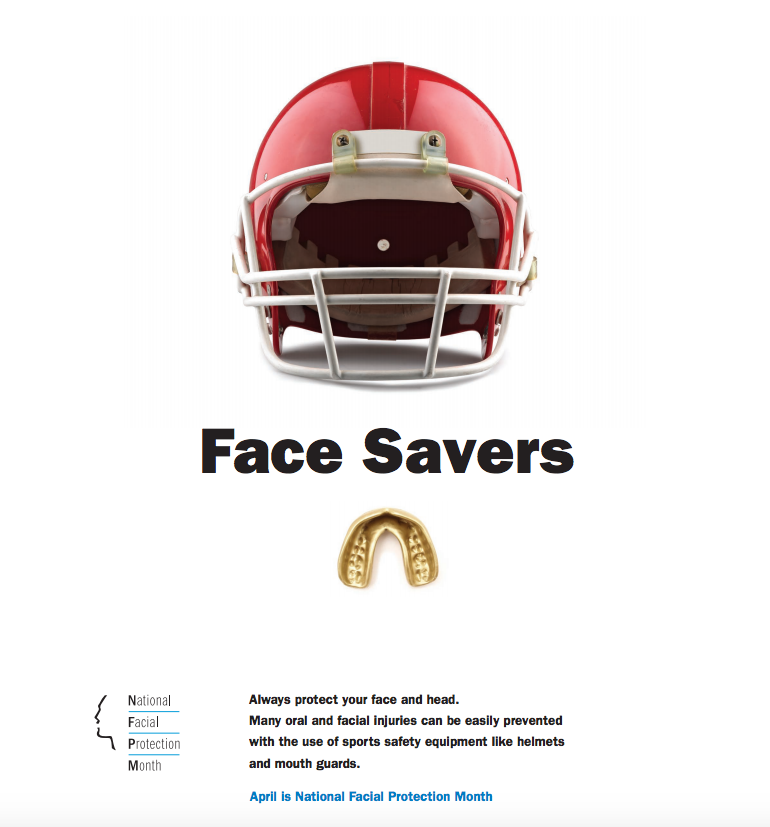Did you know that approximately 12 million children and young adults suffer a sports-related injury every year? This leads to 33 billion dollars in health care costs along with 20 million missed school days. National Facial Protection Month is promoted every April to inform the public that many of these injuries can be prevented by wearing the proper protective gear.
Simple Steps
The American Dental Association, along with several other national organizations, is recommending that everyone follow these safety tips while playing all types of sports:
- Always Wear a Mouthguard – Mouth guards decreases your risk of broken teeth or injuries to your jaw, face, tongue, or lips if you take a blow to the face.
- Don’t Forget Your Helmet – Helmets help prevent injuries to the head, face, and jaw by absorbing the energy of the impact.
- Consider Helmet Cages – With sports like hockey and baseball, helmets are required, but cages are optional. These cages greatly increase protection of your face and teeth, and we highly recommend them.
- Pass it On – Spread the word that all athletes in all sports should wear mouth guards from a young age.
More About Mouth guards
Having a mouthguard custom made by your dentist is your safest option, because they will match the individual structure of your mouth and teeth for the ideal fit. The optimal oxygen flow design improves performance and endurance. Custom mouth guards are also available to those who are wearing braces.
In addition to protecting your teeth from chipping or breaking, a mouthguard can also save you from damaged bridgework or crowns, root damage to teeth, cheek and lip injuries, fractured jaws, and even concussions.
How to Get One
Schedule an appointment to ask your dentist about the different options available to you. After your visit, you will schedule an appointment to have dental impressions made. Impression trays will be filled with a putty-like substance that you place your upper and lower teeth into.
Once each tray is set, the impressions are removed and filled with plaster to create a cast of your mouth. A technician will design your customized appliance by using these casts. You will be able to return in a week or two to try your completed mouthguard while your dentist assesses the fit.
While getting an athletic mouthguard does involve some expense, it is an essential one. You only get one set of permanent teeth. Wearing a custom-made mouthguard will help them to last a lifetime.
Conclusion
While contact sports usually require helmets and mouth guards, that’s the bare minimum. We encourage all athletes, especially young ones to take extra steps like custom mouth guards and helmet cages to provide as much protection as possible of their face and teeth. Facial injuries can be extremely painful, and medical and dental procedures for facial injuries can cost thousands of dollars. Get the most protection you can to make sure you’re face is protected while playing sports.

